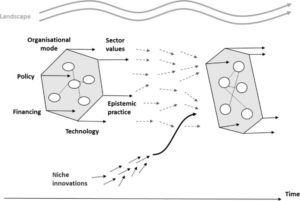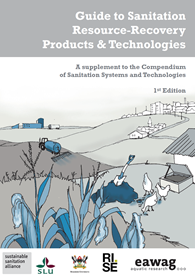We are proud to share a recently published study from the SPANS project related to opportunities for introducing resource recovery innovations in Uganda. In particular we look at the four source-separating on-site sanitation systems – niches. The study was performed in collaboration with Makerere University and RISE. It uses the multi-level perspectives of socio-technical systems to deepen our understand the existing situation (regime). Through this in-depth analysis of current practices in the Ugandan sanitation sector, we have been able to highlight stress points that could be used to leverage a change to new systems and ways of doing things. Stakeholder specific suggestions for action based on results of this study include:
- Utilities should pilot innovative solutions in order to demonstrate their advantages and build knowledge.
- Universities should adapt curricula to break the dominance of sewage systems, including more on-site solutions and Best Available Technology (BAT) approach to selection of systems.
- Researchers should disseminate knowledge regarding technical advantages of the niches.
- Niches should focus on possibilities for simplifying organisational structures, streamlining and clarifying roles and responsibilities.
- Policy makers should adapt policy environments to reflect actual and planned reality of sanitation services, including making public funding available for the on-site regime and its niches.

For more information contact Jennifer McConville.




